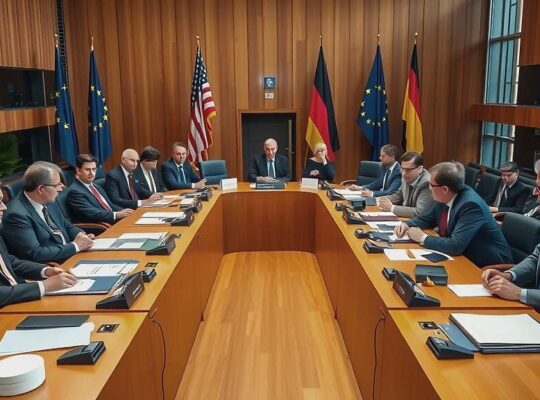Concerns are being raised about the practicality and potential consequences of a planned federal law in Germany designed to promote adherence to collective bargaining agreements. The Institute for German Economy (IW) has questioned the effectiveness of the legislation, suggesting it may generate more administrative burdens for businesses rather than achieving its intended goal.
According to Hagen Lesch, an IW expert, the law does not address an existing problem but instead introduces additional bureaucracy. He cited the experience of North Rhine-Westphalia, a region with long-standing regulations on tariff loyalty, where adherence rates among businesses have actually decreased significantly – falling from 36.6% to 25% since 2014.
The IW warns that if the federal government receives fewer competitive bids and is forced to pay higher prices to larger companies due to the new regulations, taxpayers will ultimately bear the cost.
Furthermore, the institute predicts that smaller and medium-sized enterprises (SMEs) could be disadvantaged. Larger companies, typically more inclined to adhere to tariffs and often exceeding minimum requirements, may be favored, potentially discouraging smaller, non-tariff-bound businesses from participating in public tenders. This is attributed to the difficulty these smaller firms may have in incorporating tariff wages into their economic models and the potential to be overwhelmed by the increased bureaucratic workload.
The planned law would mandate that federal contracts exceeding a threshold of €50,000 be awarded only to companies that guarantee adherence to collective bargaining standards, including ensuring compliance from potential subcontractors. The federal labor minister intends for this measure to incentivize greater commitment to collective bargaining agreements across industries.












